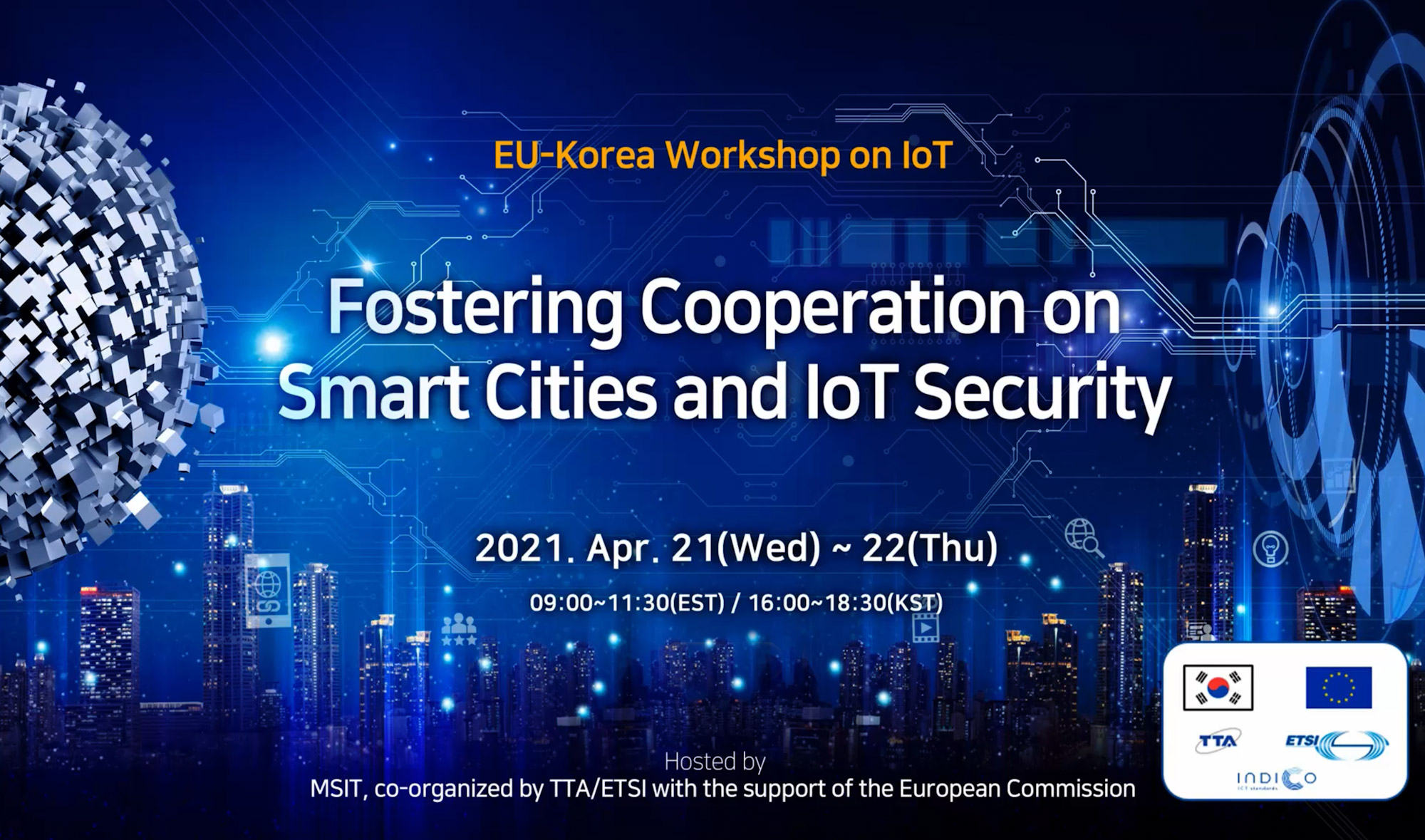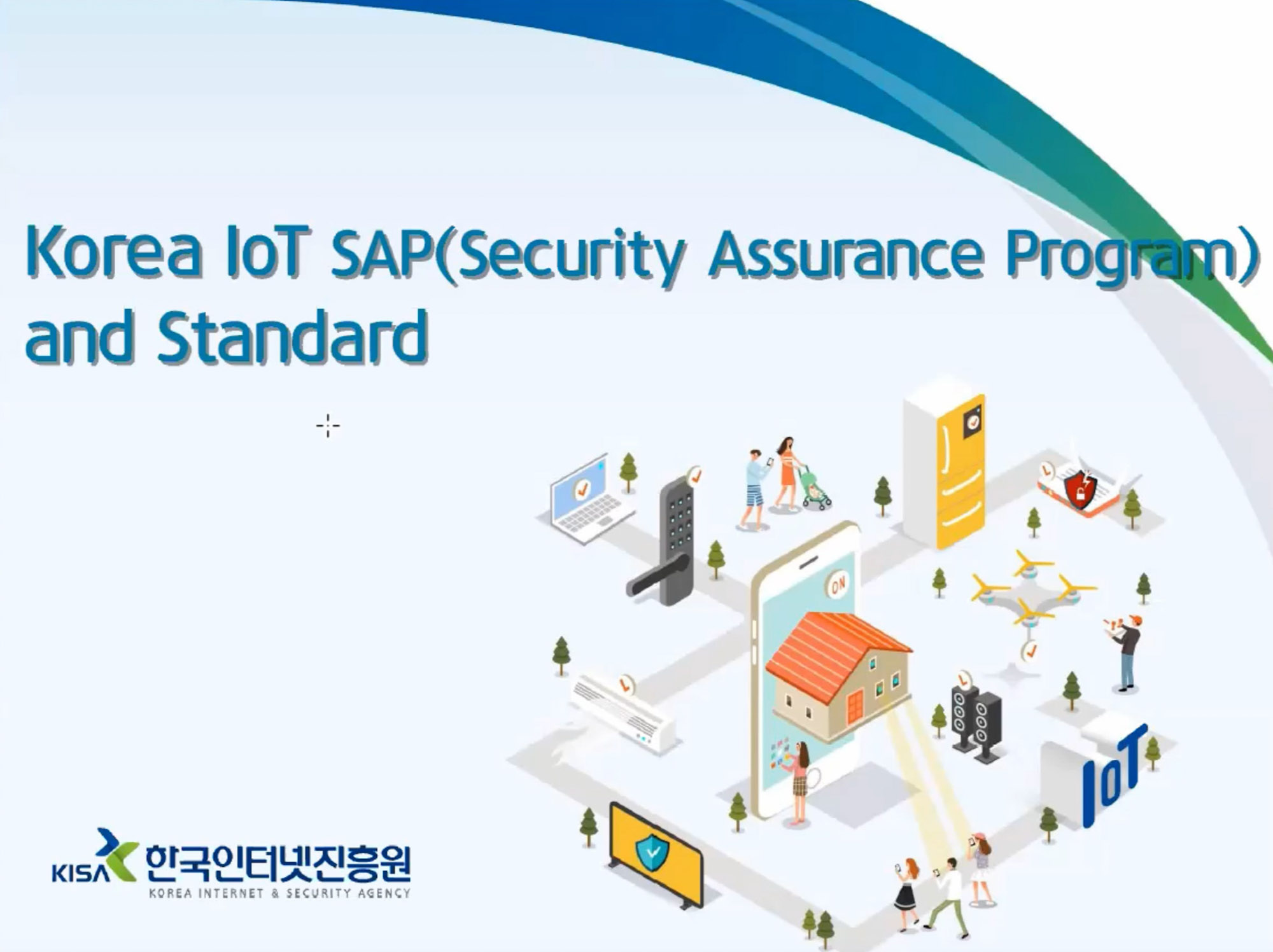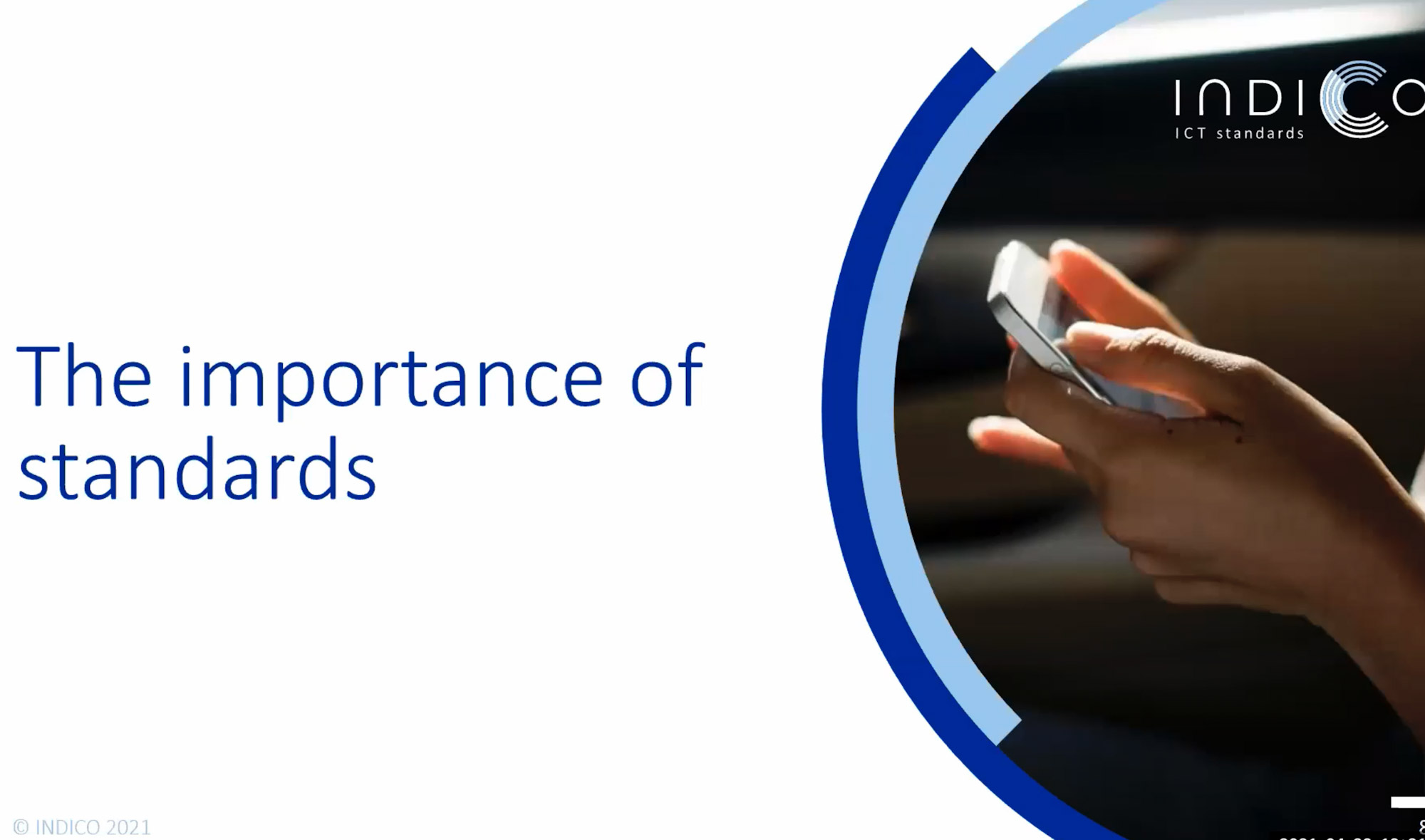Cybersecurity for Consumer IoT Standardisation and certification schemes was the topic of discussion in the EU-South Korea Webinar organised on April 22, 2021.
ETSI and TTA, with the support of the European Commission, organised a webinar focusing on the standardisation initiatives around cybersecurity for consumer IoT. Europe and South-Korea have a longstanding history of cooperation in the digital policy and standardization domain, which now is extended to cover the broad scope of IoT systems and applications. With the rapid expansion of the Internet of Things in the consumer space, security has become a tantamount priority requiring close coordination and cooperation. Luis Romero from ETSI underlined that it is critical that security is embedded in every aspect of IoT from the very beginning and KC Koo, the Vice President of South Korean TTA, underlined the importance of close coordination between Europe and South Korea.
The challenges of IoT cybersecurity are global in nature, as the threats are clearly borderless and not confined or restricted to any one region. As such, global threats are best dealt with a coordinated, common response based on global standards. The transition to digital societies will be predicated on security standards - which allows for the generation of trust by consumers and an accelerated market rollout of digital products and services.
Xavier Piednoir emphasized that the key work of ETSI and TTA was to focus on identifying those standards being used by certification programs where the two organisations have a level of control and work towards harmonisation of those standards. It was reiterated that the role of groups like ETSI and TTA was not just to develop standards in the area of IoT cyber security but also to coordinate and connect all of the relevant experts in this space.
Emilio Davila-Gonzalez from the EC’s DG Connect, underlined the potential challenge of having different standards in South Korea and Europe. One of the roads forward is to assess and compare the two standards, identify commonalities and differences and then see in which ways they could be merged into one comprehensive standard. Mr KC Koo from TTA highlighted that the InDiCo programme has been a key help in tackling future cooperation.


